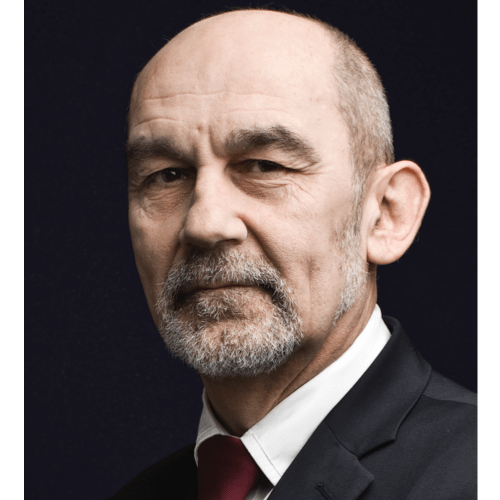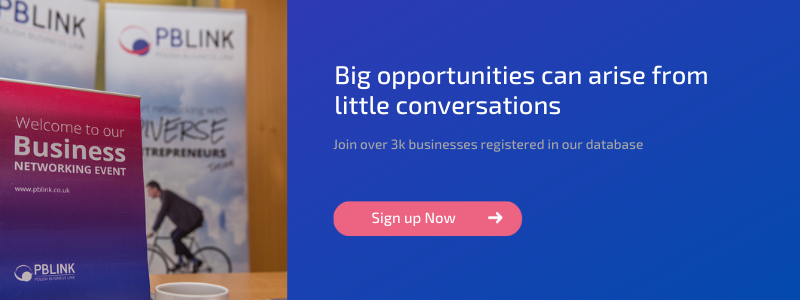 Polish entrepreneurs from across Scotland learn how to scale up their businesses at the 2nd Polish Scottish Business Forum.
Polish entrepreneurs from across Scotland learn how to scale up their businesses at the 2nd Polish Scottish Business Forum.
This year’s Polish Entrepreneurs’ Forum in Scotland took place at the Gogarburn headquarters of RBS, just outside Edinburgh, on 25 November 2016. Following the success of last year’s forum, the second edition brought together 70 business owners, mentors, investors and advisers for a day-long event that consisted of focused clinics that touched on many aspects of setting up, scaling up and selling one’s business, and of course networking.
Partners of the event were RBS, lawyers Gillespie Macandrew and OneMoneyMail (trading as Sami Swoi); the event was supported by BC Printing, Interface and Emito.net.
The event was officially opened by Dariusz Adler, the Polish Consul-General in Scotland, and Susan Fouquier, RBS’s regional manager. Afterwards Bartłomiej Kowalczyk, founder of PBLink spoke about how enterprise is supported in Scotland, and the benefits of networking with as diverse a group of entrepreneurs as possible.
Stuart Dearden from RBS wowed the audience as he explained how the bank’s start-up accelerator, EntrepreneurialSpark, operates. Conditions for fledgling businesses at the Gogarburn campus were conducive to business growth – born out by a high rate of first-year business survival. Access to know-how as well as finance are on offer at the RBS ‘business hatchery’, explained Mr Dearden.

Leadership style was the theme of the next presentation, by advisor and mentor Kenny Fraser of Sunstone Communication, who explained that there’s no shortage of advisors and advice on offer – in contrast to the situation facing Polish entrepreneurs back home. As companies scale up, business founders take on staff and with that comes the challenge of proving oneself a leader – one that will be followed.
Pitching to investors is an extremely important skill, most entrepreneurs will at some stage have to sell themselves and their business.
Yvonne Greaves, from RBS Business Banking, having heard hundreds of pitches, explained to participants that to be successful, you have to inspire and engage through storytelling. “ ‘What’s the pain your solution is going to solve?’ That’s the key question,” she said. Research your audience through LinkedIn,” advised Ms Greaves.
Lawyer Chris Gibson from Gillespie Macandrew LLP explained how to run a company with another shareholder or shareholders. Questions from participants at the end of the presentation suggested that many Polish entrepreneurs running businesses in Scotland are having issues in this area, and are requiring external assistance from a legal professional.
The lunch break gave everyone the chance for one-to-one sessions with the morning’s speakers, and a first opportunity for swapping business cards. Lunch was particularly good, in particular the excellent hot beef pies (something that should be made available in Poland!).

After lunch, Louise Arnold from Interface talked about collaboration through academic partnerships. Dipping into the scientific know-how that’s coming out of Scottish universities and helping to commercialise it is a great way to create a valuable business. Working with universities can help innovative firms solve their R&D challenges and grow faster, she said. Ms Arnold presented some case studies showing how collaboration with Scottish academia has helped businesses develop solutions which would have been impossible to achieve on their own.
Hearing how to apply to @ESparkGlobal from Stuart – brilliant opportunity for start ups #BizForumPL @pb_link
— Susan Fouquier (@SFouquier)
Business owners thinking of selling their firms were addressed in the next presentation by Sara Robertson from Cleoo Ltd, whose experience in banking and private equity included scaling up a technology business prior to its acquisition. Ms Robertson looked at maximising the value of your firm from the perspective of an adviser who takes a detached view of the business. “You want my advice? Come to me with three options prepared. Once you’ve taken the trouble to do that, you’ll probably already know which option will work best,” she advised.
Colin McKeand, ‘Scotland’s Mr Networking’, is a networking-skills trainer, and in a colourful talk explained to the Polish entrepreneurs the do’s and don’ts of networking. He focused on the value of trust within a network, and explained how a lead becomes a referral, and a referral becomes a recommendation.
“We should all set ourselves networking goals when we go to an event,” suggested Mr McKeand. “And follow up within 24 to 36 hours.”
Malcolm Currie from Strathesk Resolutions talked about effective mechanisms for staff consultation and involvement. “When making critical business decisions, it is important to seek the views and opinions of your employees.” This is a legal obligation for companies employing over 50 people – but even if you’re only employing a handful of people, it makes eminent sense, said Mr Currie. “They will help you anticipate problems and help put solutions in place,” he said.
Discussion panel featuring 6 experienced entrepreneurs #BizForumPL pic.twitter.com/OMHXDw0GIn
— Polish Business Link (@pb_link) 25 November 2016
A spirited panel discussion including some Polish entrepreneurs, such as Krzysztof Kieryś, co-founder of the first Polish printing house in Scotland and social entrepreneur Ewelina Lis, picked up on many of the points raised during the business clinics. The role of trust in business as an enabler of moving from an adversarial to a win-win model was discussed, as was the role of an external mentor and advisor in the process of business growth.
The day’s event was summed up by Natalia Głąbik-Stankiewicz of OneMoneyMail (t/a Sami Swoi), the largest Polish money-transfer company in the UK with over 300,000 customers. In her closing remarks, Ms Głąbik-Stankiewicz thanked the event organisers, partners and supporters.
All the presentations from the day are available for download for PBlink embers for free by following this link www.pblink.co.uk/downloads and photographs are available here www.pblink.co.uk/photos .
After the formal part of the forum, participants moved into the hall outside the conference room for the networking session, which began with everyone having the chance to introduce themselves and their business.



